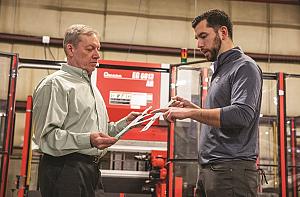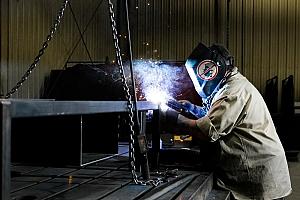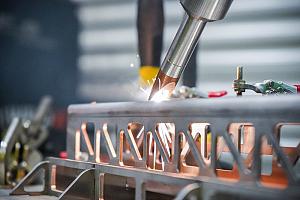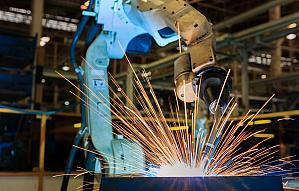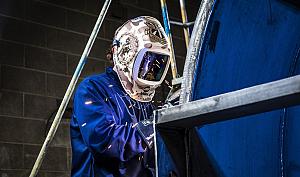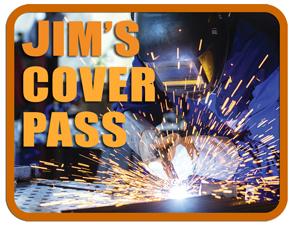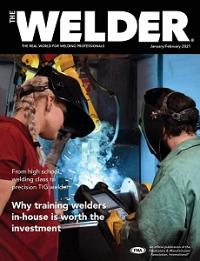Senior Company Trainer
- FMA
- The Fabricator
- FABTECH
- Canadian Metalworking
Categories
- Additive Manufacturing
- Aluminum Welding
- Arc Welding
- Assembly and Joining
- Automation and Robotics
- Bending and Forming
- Consumables
- Cutting and Weld Prep
- Electric Vehicles
- En Español
- Finishing
- Hydroforming
- Laser Cutting
- Laser Welding
- Machining
- Manufacturing Software
- Materials Handling
- Metals/Materials
- Oxyfuel Cutting
- Plasma Cutting
- Power Tools
- Punching and Other Holemaking
- Roll Forming
- Safety
- Sawing
- Shearing
- Shop Management
- Testing and Measuring
- Tube and Pipe Fabrication
- Tube and Pipe Production
- Waterjet Cutting
Industry Directory
Webcasts
Podcasts
FAB 40
Advertise
Subscribe
Account Login
Search
Reasons to become a certified welding inspector
The process of becoming a CWI requires a major time and financial investment
- By Jim Mosman, AWS, CWI/CWE
- Updated January 26, 2023
- February 17, 2021
- Article
- Arc Welding
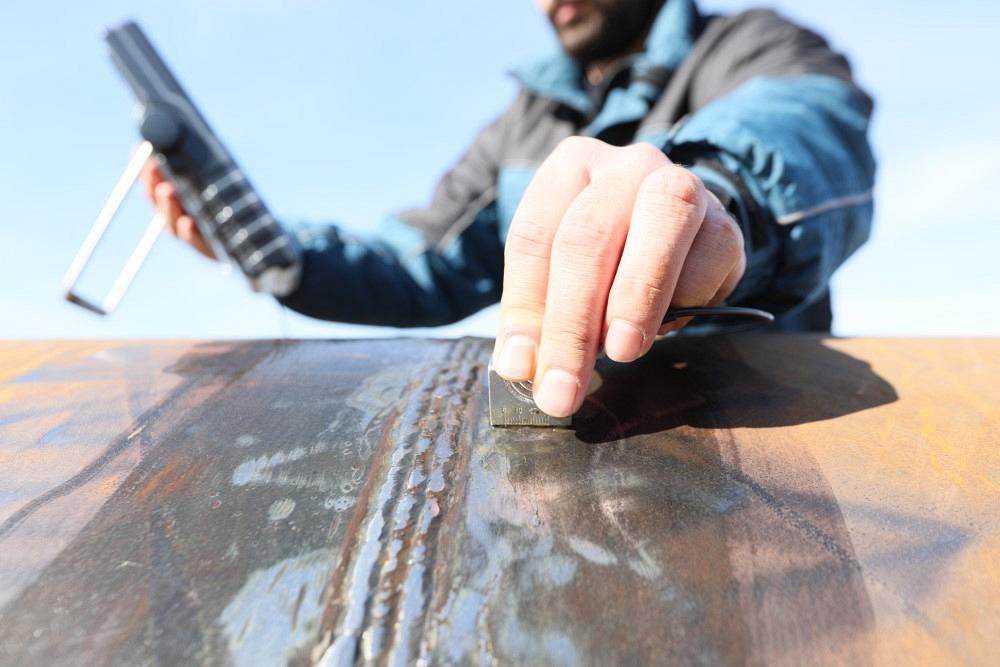
The process of becoming a certified welding inspector (CWI) requires a major time and financial investment. So what are the benefits, particularly for those not looking to become weld inspectors? Jim Mosman shares his take. Getty Images
Q: My supervisor suggested that I obtain the CWI credentials. If I do not plan to become a welding inspector, what’s the benefit of having these credentials and what’s the return on investment for the time and money I would spend going through the process?
A: The certified welding inspector (CWI) credential by the American Welding Society (AWS) is awarded to an individual that has proven proficiency in welding technical knowledge and the practical application of the understanding of welding codes. The CWI is recognized both nationally and around the world as having a level of expertise in the welding field. Before you can even consider qualifying, you will have to pass a vision exam and document a minimum combination of education and work experience in the welding field.
If you meet those requirements, you will need to pass the certification exam with a 72% in each of the three parts, and a combined average of 72% or higher. The certification exam consists of three parts, each two hours long.
Part A is a closed-book exam comprising 150 questions about the fundamentals of welding. Part B is a practical, hands-on exam of 46 questions that show the ability to use inspection tools and understand specifications as written. Part C, which is open book, is based on the application of a welding code and has 45 to 60 questions depending on the code used.
This is where your investment of time and money comes into consideration. I have known several welders, educators, and engineers who have earned the CWI, and some who did not. Your education and work experience will be important to your basic welding knowledge. I have known a few individuals that put in the effort to study the code books and other texts on their own and were successful.
Most of the people that have done well have also attended specific CWI training workshops. These are usually one or two weeks long and are offered through AWS or some private training institutions, with the Part B portion of the exam on the Saturday immediately after the workshop.
I highly recommend studying as much as possible on your own and attending a workshop. The workshops will help with your understanding of the exams and how to take them. Acquiring the study materials, attending the workshops, the travel expenses associated with the workshops, and the actual exam fees can become quite costly. That is your investment of funds.
Why to become a certified welding inspector
So what are the benefits of becoming a certified welding inspector?
First, the credential is verification that you possess a proven knowledge of the welding industry. This elevates your and your employer’s status and gives customers the knowledge that work is being done at this higher standard. Second, this certification is recognized throughout the industry, so the career advancement opportunities for individuals with a CWI and work experience are continually expanding. And third, you will belong to a community of other CWIs. Those of us that have this certification understand what it takes to achieve this goal.
While the CWI certification process requires an investment of your time and money, the benefits of earning this credential are certainly worth your efforts.
About the Author

Jim Mosman, AWS, CWI/CWE
Lincoln Electric Education Division
About the Publication
subscribe now
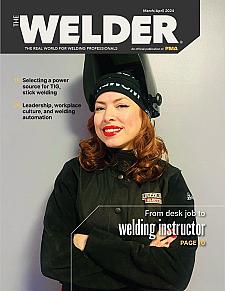
The Welder, formerly known as Practical Welding Today, is a showcase of the real people who make the products we use and work with every day. This magazine has served the welding community in North America well for more than 20 years.
start your free subscription- Stay connected from anywhere

Easily access valuable industry resources now with full access to the digital edition of The Fabricator.

Easily access valuable industry resources now with full access to the digital edition of The Welder.

Easily access valuable industry resources now with full access to the digital edition of The Tube and Pipe Journal.
- Podcasting
- Podcast:
- The Fabricator Podcast
- Published:
- 05/07/2024
- Running Time:
- 67:38
Patrick Brunken, VP of Addison Machine Engineering, joins The Fabricator Podcast to talk about the tube and pipe...
- Trending Articles
The role of flux in submerged arc welding performance

Aluminum MIG wires offer smooth feeding, reduced tangling

Connecticut students compete in Maritime Welding Competition

Welding power source’s modes designed to help optimize performance
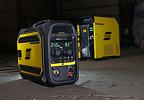
Three ESAB welding machines win Red Dot Awards for product design

- Industry Events
Laser Welding Certificate Course
- May 7 - August 6, 2024
- Farmington Hills, IL
World-Class Roll Forming Workshop
- June 5 - 6, 2024
- Louisville, KY
Advanced Laser Application Workshop
- June 25 - 27, 2024
- Novi, MI
Precision Press Brake Certificate Course
- July 31 - August 1, 2024
- Elgin,


